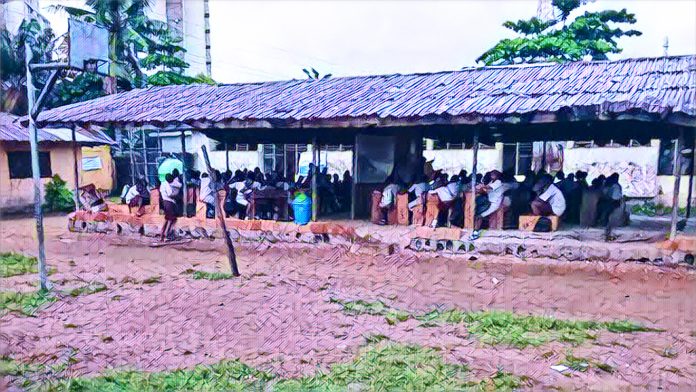Lagos, Nigeria’s bustling economic powerhouse, faces a daunting challenge as it grapples with the proliferation of over 12,000 unapproved schools, undermining the state’s efforts to provide quality education for its teeming youth. This crisis, highlighted in a recent report by Gbenga Salau, underscores the stark reality that many Lagosians, disillusioned by the inadequacies of public schooling, turn to private institutions, many of which operate without the government’s sanction.
The state’s struggle is emblematic of a larger issue: the dire need for infrastructural and educational reform in a city that, despite its substantial Internally Generated Revenue (IGR), falls short in meeting the educational needs of its residents. The existence of schools like Ade Kindergarten School, which operates from a single room and lacks qualified teachers, and God’s Time Daycare, Nursery and Primary School, functioning within a church hall, points to a dire compromise on the learning environment and the quality of education imparted to the students.
The Lagos State government’s disclosure, through Commissioner for Basic and Secondary School Education, Mr. Jamiu Alli-Balogun, that a mere 5,622 schools are officially sanctioned to operate, starkly contrasts with the burgeoning number of illegal establishments. This scenario not only highlights the regulatory lapses but also the desperation of parents seeking education for their children at any cost, often within their limited means.
Stakeholders, including Dr. Johnson Ibidapo of Human Development Initiatives (HDI) and Stella Olubunmi Francis of Glowing Splints Development Initiative, emphasize the role these unapproved schools play in filling the void left by insufficient public schooling options. They argue that these institutions, while not ideal, serve as a makeshift solution for many families. The proliferation of such schools is attributed to various factors, including stringent enrollment policies in government schools that inadvertently exclude many due to requirements like tax clearance certificates and Lagos State Identity cards.
However, the existence of these schools comes with its own set of challenges. Aside from the apparent lack of infrastructure and qualified personnel, issues such as child safety, health hazards, and compromised educational standards raise significant concerns. The state’s acknowledgment of these challenges, coupled with the alarming statistic that 80% of child abuse cases stem from unapproved schools, underscores the urgent need for a comprehensive strategy to address this crisis.
In response, the Lagos State government has outlined a plan that eschews outright closure of these schools in favor of a more nuanced approach. This includes engaging with the operators of illegal schools to guide them towards compliance with educational standards and regulatory requirements. Such measures, while pragmatic, highlight the delicate balance between enforcing quality education and acknowledging the socio-economic realities driving the proliferation of unapproved schools.
As Lagos continues to navigate this complex issue, the broader implications for Nigeria’s educational landscape remain profound. The state’s experience reflects the critical importance of developing inclusive policies that not only raise educational standards but also ensure that every child has access to safe, quality education. The way forward, as suggested by education experts and government officials alike, involves a collaborative effort that leverages both public and private resources to address the root causes of this crisis, thereby paving the way for a brighter educational future for Lagos and beyond.



